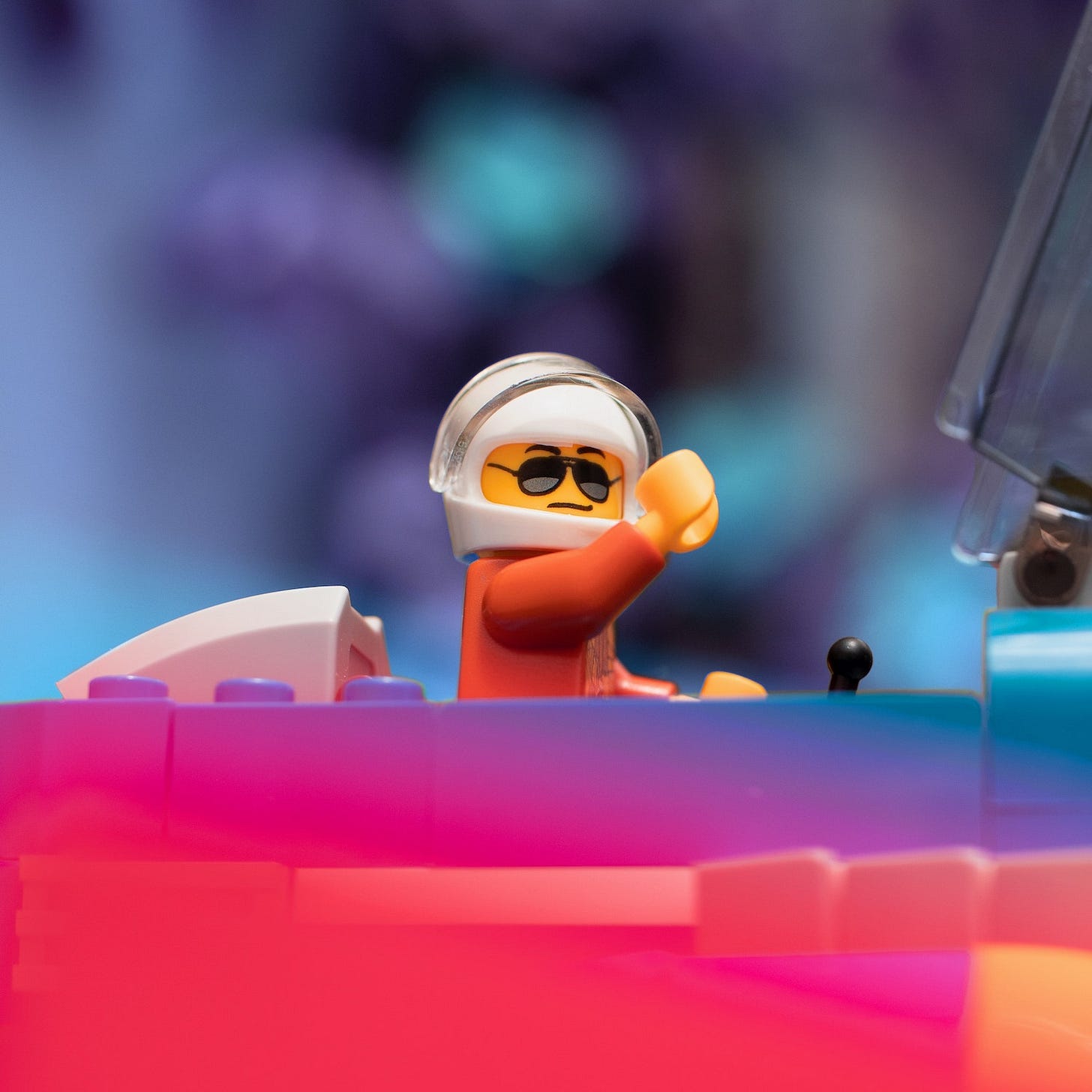Why it's hard to write good songs
I wrote my first song in fourth grade while playing with Legos.
Here's how it happened, as best as I remember it: I put about five Lego heads on top of each other and snapped three pairs of Lego pants together, then marched the mutant thing around my little Lego town singing six words.
"He's just a guy, just a guy, just an ordinary guy
Just a guy, just a guy, just a guy."
As a 10-year-old, I thought that was hilarious, and I thought the melody was pretty freaking catchy, too. (Still do, to be honest. I'm literally humming it as I write this, and to my 29-year-old ears it's still a bop.)
It's harder for me to write songs, now. I think there are a few reasons for that – some intrinsic to me, some part of the world I'm living in.
For example, have you ever noticed how guardedly ironic the internet is?
Last week, my friend sent me The New Yorker's piece on Ted Williams' last home game.
You should read it. It's like digging up a time capsule. It's lyrical. It's a little bit funny, but it comes across as self-assured, almost pretentious, as if John Updike, the author, unashamedly believed that what he was writing and witnessing mattered. It was published in 1960, when journalism was still, for the most part, a one-way media format.
I think the piece would've been written differently today. In the era of endless comment sections and echoing Twitter threads, I think Updike probably would've struck a more ironic tone. He definitely would've used fewer big words.
I don't know for sure, but I imagine being a sports journalist in 1960 was similar to Bob Ross' work painting in a TV studio; the work was always for the public, but the public was safely removed to the other side of the screen. People had fewer direct lines of feedback, and so had less direct impact on the work. Creators felt a little more isolated, maybe.
Today, we're all crowded into the studio with the painter: "Oh, you put that happy little cloud in the wrong place. It'd look better higher up. And it should've been pink."
In modern media, making the public a part of the process is a part of the product.
There's good and bad to this, but I think one repercussion is that many of us feel the need to add caveats to what we create. Because we know that we're never alone – that anything we make can be held up and examined from every angle – we cloak ourselves in self-awareness and sarcasm. We preempt criticism by making it clear we were never totally serious in the first place.
I'm not talking about politics or "cancel culture" or anything like that, really. I'm just talking about sincerity. Sincerity is vulnerable. Vulnerability requires intimacy. The internet is unprecedentedly public, and that's one reason it's remarkably insincere.
And that's part of why it's harder for me to write songs, now, I think.
But it's probably mostly an excuse.
We've only had the internet for a couple of decades, but it's always been human nature to care too much about what other people think. More to the point, it's always been my nature; I care too much about what other people think.
I wish I didn't. I want to write like I did when I was a kid. I interviewed Jon Foreman last year, and he said something that stuck with me – as a writer, you should always have the voice of a critic and a child in your head. Here's how he put it:
"The critic is always nitpicking and saying, “Oh, that sounds like the Beatles. That sucks. That’s a horrible topic for a song. And the child is full of this wide-eyed wonder that thinks, 'Let’s write a song about surfboards. Oh my gosh! Peanut butter and jelly is awesome. Let’s write a song about it!'
"And I think that you have to be able to present yourself to both of them as you’re writing the song. That conversation is where good songs come from."
That idea seems true to me, and I wish I could listen to the child more often. Don't get me wrong: I don't want to write the same songs I did when I was 10. That'd be super weird.
But I do want to write with something of the same spirit. I want to create stuff with the world-wise taste of the critic, yeah, but also with the wide-eyed innocence of the kid playing with Legos. It's a hard balance, but it's worth trying to walk it.


